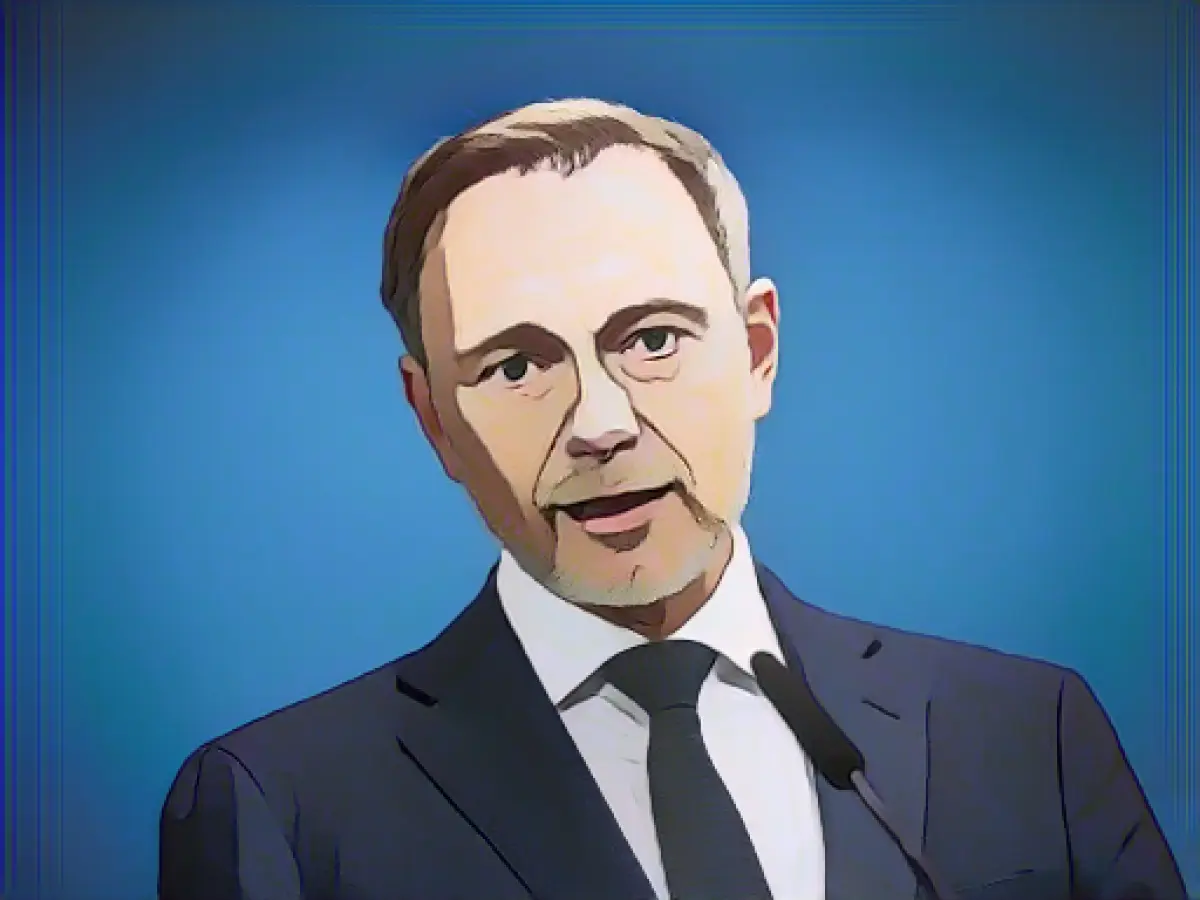Budget ruling also unsettles federal states - Bundesrat meets
The Bundesrat is meeting this Friday for the first time since the Karlsruhe budget ruling. The federal states are wondering which of the federal government's financial commitments are still valid after the Federal Constitutional Court declared the reallocation of 60 billion euros in the 2021 budget null and void last week. Meanwhile, Federal Finance Minister Christian Lindner (FDP) called on the coalition government to make savings in light of the budget crisis. "We are talking about a considerable need for additional consolidation," he told Handelsblatt. We are talking about double-digit billion contributions per year.
Traffic light coalition wants an exception to the debt brake this year
Due to the Karlsruhe budget ruling, the "Ampel" coalition wants to make use of the debt brake exemption for this year. Lindner announced on Thursday that he would submit a supplementary budget to the cabinet next week in consultation with Chancellor Olaf Scholz (SPD) and Vice-Chancellor Robert Habeck (Greens). A spokeswoman for Lindner's ministry added that the federal government would propose to the Bundestag that an extraordinary emergency situation be declared. In this way, loans that have already been used this year are to be legally secured retrospectively.
The budget ruling from Karlsruhe relates to money that had been approved as a coronavirus loan but was to be used retrospectively for climate protection and modernizing the economy. At the same time, the judges ruled that the state may not put emergency loans aside for later years. As a result, further billions for future projects are at risk.
Growth Opportunities Act and basic child protection in the Bundesrat
The so-called Growth Opportunities Act, on which the Federal Council is to decide, could be affected. It provides for tax relief for companies of seven billion euros a year until 2028, which is intended to give the sluggish German economy new momentum. However, implementation will not begin so quickly anyway, as the chamber of the federal states is likely to refer the bill already passed by the Bundestag to the mediation committee. The federal states criticize the fact that they and the local authorities would have to bear around two thirds of the costs of the law. This would overburden them.
The controversial basic child benefit scheme will also be discussed by the state parliament on Friday. Initially, it can only issue a statement on this. A question mark has also hovered over the billion-euro project since the ruling from Karlsruhe. CDU leader Friedrich Merz has already called for it, as well as the higher citizens' income and the heating law, to be abandoned in order to close the budget gap.
Federal budget for next year still up in the air
It is still unclear when the 2024 federal budget can be passed. The SPD, Greens and FDP parliamentary groups have canceled the budget consultations in the Bundestag scheduled for next week. However, they have not completely given up on a conclusion before the end of the year. There is the possibility of shortening deadlines and holding special sessions, according to the coalition. Scholz said on Wednesday that he expected a swift and very timely agreement.
Lindner told Handelsblatt that it would be advisable to consider the 2024 and 2025 budgets together. "Because structural changes are unavoidable in my view." According to Lindner, in addition to the Climate and Transformation Fund, the Economic and Stabilization Fund, which is used to finance the electricity and gas price brakes, must be placed on a different legal basis this year and terminated in 2024. The reconstruction aid fund for the victims of the 2021 floods, which was set up by the previous government, is also not constitutionally secure.
Debate on the future of the debt brake
When asked whether he would also declare an emergency in 2024, Lindner said that he was currently only looking at 2023. However, he clearly rejected calls for the debt brake to be relaxed. According to him, there will also be no tax increases.
The Greens and SPD, on the other hand, want to discuss the future of the debt brake. Green Party leader Ricarda Lang said on ZDF's "heute journal" on Thursday: "One is the question of suspension, for example for 2024 or 2025. We must now discuss this within the government," she said. The second question concerns a fundamental reform of the debt brake enshrined in the Basic Law. SPD leader Saskia Esken told the newspapers of the Funke media group (Friday): "We are still in a crisis situation, the effects of which will also be felt in the coming year." It will also be necessary to extend the exemption for 2024.
The Parliamentary Secretary of the CDU/CSU parliamentary group, Thorsten Frei, spoke out against tweaking the debt brake. He told the Funke Mediengruppe newspaper (Friday): "In times of record state revenues, it is not the debt brake that is the problem, but the unconstitutional management of the traffic light coalition. The government is clearly not in a position to set priorities."
The debt brake enshrined in the Basic Law only gives the federal government limited scope for borrowing. Exceptions are permitted in the event of natural disasters and exceptional emergencies, such as the recent coronavirus pandemic and the war in Ukraine.
The Household budgets of the federal states could be affected if the Growth Opportunities Act, which provides for tax relief for companies, is affected by the Bundestrat's consideration of the act. Federal Finance Minister Christian Lindner, a member of the Federal Government, has announced plans to propose a supplementary budget to the cabinet in light of the budget crisis caused by the Karlsruhe budget ruling.
Source: www.dpa.com







